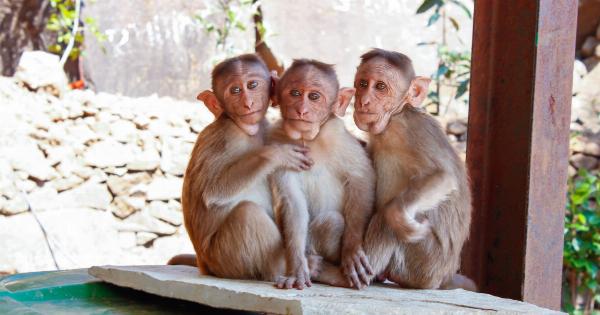The debate between vegetarians and meat eaters has been ongoing for years. Each group staunchly defends their choice of diet and lifestyle, and the question of who is stronger and more introverted remains a point of contention.
In this article, we will explore both sides of the argument and compare the strengths and weaknesses of vegetarians and meat eaters.
Physical Strength
One common belief is that meat eaters are stronger than vegetarians due to the protein intake from meat. However, there is no concrete evidence to support this claim.
In fact, many vegetarian athletes like Serena and Venus Williams, Carl Lewis, and Sebastian Coe have won Olympic medals and set world records.
Research has shown that a well-planned vegetarian diet can provide all the necessary nutrients, including protein, for physical strength and endurance.
Additionally, vegetarian diets are linked to lower risks of cardiovascular disease, obesity, and other health complications that can hinder physical strength.
Mental Strength
People often associate meat with masculinity and strength, while vegetables are seen as feminine and weak. However, mental strength is not determined by diet. Both vegetarians and meat eaters can exhibit equal levels of mental strength.
Studies have shown that vegetarians tend to have lower levels of anxiety and depression compared to meat eaters.
This could be due to the high levels of antioxidants and nutrients found in plant-based foods that support brain function and mood regulation. On the other hand, some studies suggest that consuming red meat is linked to an increased risk of depression.
Introversion vs. Extroversion
There is no evidence to suggest that either vegetarians or meat eaters are more introverted or extroverted. These traits are determined by personality and genetics, not diet.
However, some people choose to adopt a vegetarian lifestyle due to ethical or environmental reasons, which could indicate a preference for introversion.
Additionally, vegetarian diets may require more planning and preparation, which could also be attractive to introverts who prefer solitude and self-reflection.
Nutritional Differences
The biggest difference between vegetarians and meat eaters is their nutrient intake. Meat is a rich source of protein, iron, and vitamin B12, while plant-based foods are abundant in fiber, vitamins, and antioxidants.
Maintaining a healthy vegetarian diet requires careful planning to ensure sufficient protein intake and avoid nutrient deficiencies.
Meat eaters, on the other hand, need to be mindful of their fat and cholesterol intake and limit their consumption of processed and red meat to maintain optimal health.
Environmental Impact
The meat industry is a significant contributor to greenhouse gas emissions, deforestation, and water pollution. By avoiding meat, vegetarians can reduce their carbon footprint and contribute to a more sustainable future.
Additionally, a vegetarian diet requires less land, water, and energy compared to a meat-based diet. Choosing plant-based foods can also reduce the demand for factory-farmed meat, which often involves unethical and inhumane practices.
Conclusion
When it comes to the debate between vegetarians and meat eaters, there is no clear winner in terms of strength and introversion. Both diets have their strengths and weaknesses, and ultimately, the choice comes down to personal preferences and beliefs.
However, research indicates that a well-planned vegetarian diet can be just as nutritious and beneficial for physical and mental health as a meat-based diet.






























